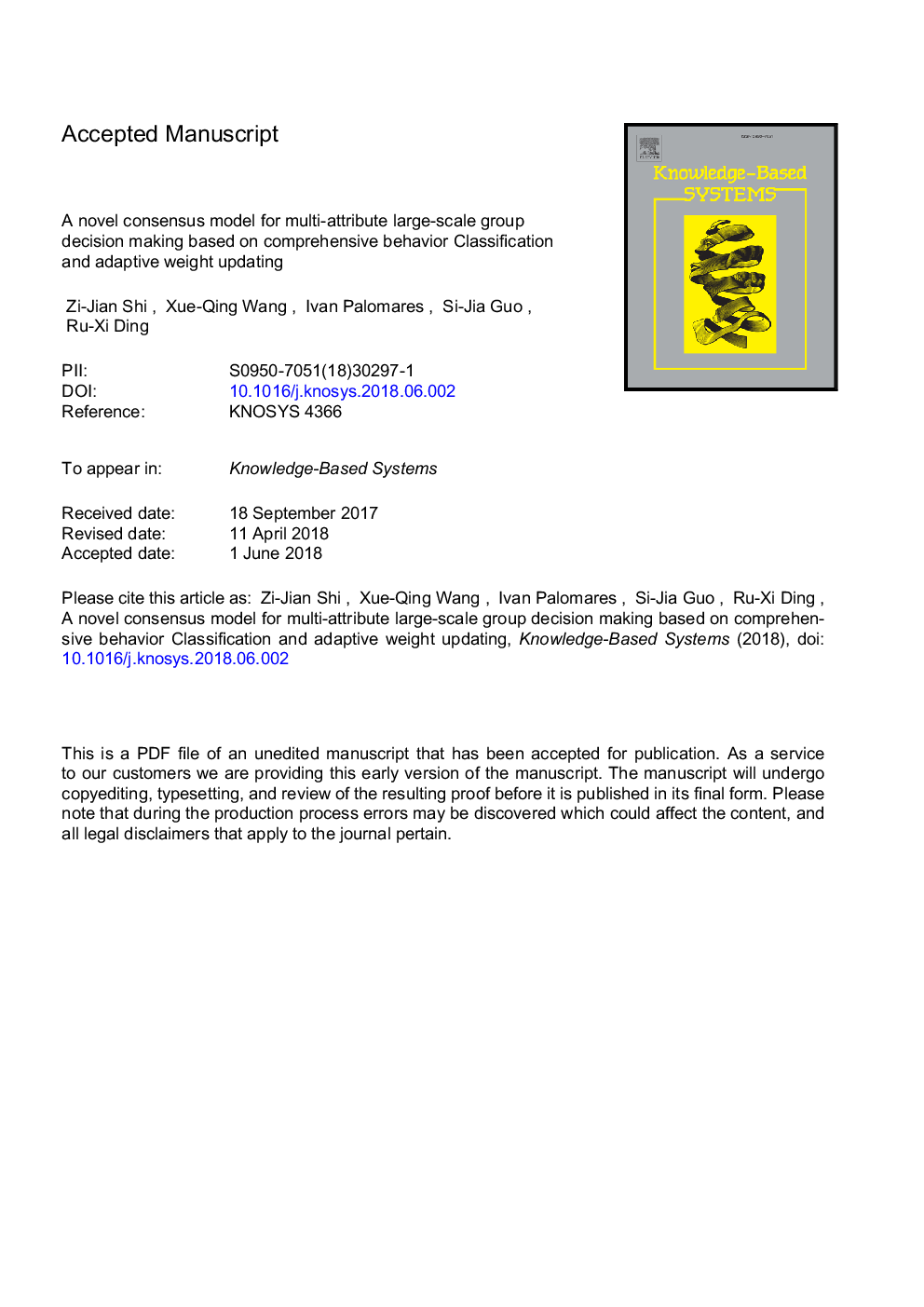| کد مقاله | کد نشریه | سال انتشار | مقاله انگلیسی | نسخه تمام متن |
|---|---|---|---|---|
| 6861292 | 1439243 | 2018 | 47 صفحه PDF | دانلود رایگان |
عنوان انگلیسی مقاله ISI
A novel consensus model for multi-attribute large-scale group decision making based on comprehensive behavior classification and adaptive weight updating
ترجمه فارسی عنوان
یک مدل اجماع جدید برای تصمیم گیری گروهی در چند گروه چند منظوره بر اساس طبقه بندی رفتار جامع و به روز رسانی سازگاری وزن
دانلود مقاله + سفارش ترجمه
دانلود مقاله ISI انگلیسی
رایگان برای ایرانیان
کلمات کلیدی
تصمیم گیری گروهی در مقیاس چند عاملی، فرآیند هماهنگی، طبقه بندی جامع رفتار، به روز رسانی وزن سازگار،
موضوعات مرتبط
مهندسی و علوم پایه
مهندسی کامپیوتر
هوش مصنوعی
چکیده انگلیسی
Consensus reaching process (CRP) has received increasing attention in recent years, as the demand for decision results with mutual agreement has greatly grown. With the current tendency to introduce e-democracy and public participation into decision making for public issues, decision makers from various backgrounds are more likely to encounter conflict when attempting to reach a consensus, especially under a multi-attribute large-scale group decision making framework. In order to improve the efficiency of the CRPs, different consensus models have been proposed. Specific patterns of behaviors presented by decision makers, such as non-cooperative behaviors and minority opinions, are also strictly supervised in these models. However, not every type of behaviors is specifically defined and given directed treatment, this includes the behavior of highly-weighted clusters, which may seriously bias group consensus. In this paper, we present a novel CRP model named uninorm-based comprehensive behavior classification (UBCBC) model with enhanced efficiency and rationality. First, a behavior classification model based on the calculation of a cooperative index and a non-cooperative index is proposed to classify three kinds of modification behaviors. Second, decision weights in the next iteration of the CRP are updated using a uninorm aggregation operator to reward or penalize the behaviors of clusters. Furthermore, a floating neutral element is introduced into the uninorm aggregation operator to lay stricter supervision upon highly-weighted clusters. Finally, an illustrative example and a numerical simulation are implemented to prove that this model is of high efficiency and feasibility.
ناشر
Database: Elsevier - ScienceDirect (ساینس دایرکت)
Journal: Knowledge-Based Systems - Volume 158, 15 October 2018, Pages 196-208
Journal: Knowledge-Based Systems - Volume 158, 15 October 2018, Pages 196-208
نویسندگان
Zijian Shi, Wang Xueqing, Iván Palomares, Sijia Guo, Ru-Xi Ding,
